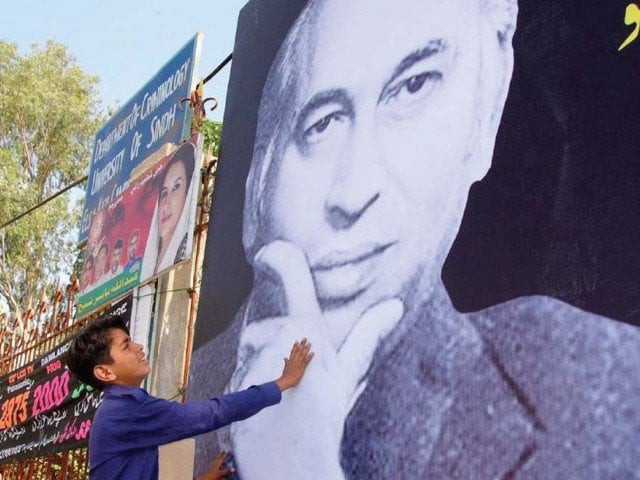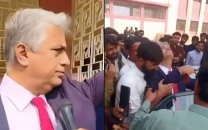Bhutto murder reference to be heard after 11 years
SC expected to take up presidential reference next week

The Supreme Court is likely to take up a presidential reference next week for revisiting former prime minister Zulfikar Ali Bhutto’s murder case judgment after a hiatus of more than 11 years. On April 2, 2011, the then-president Asif Zardari approached the apex court through a presidential reference under Article 186 of the Constitution of Pakistan to seek its opinion on revisiting the trial of the Pakistan Peoples Party (PPP) founder.
The committee of three senior Supreme Court judges, including Chief Justice Qazi Faez Isa, will decide on the fixation of the case and composition of the bench on Thursday (today). The last hearing of the reference took place on November 11, 2012.
Babar Awan, who has now joined the Pakistan Tehreek-e-Insaf (PTI), had earlier appeared as the federal government’s counsel in the case and had given lengthy arguments. However, on January 17, 2012, Awan’s law practice licence was suspended for criticising the court’s order in the Memogate case.
Read Third generation of Bhutto family awaits SC justice: Bilawal
In the last hearing, the PPP’s counsel Aitzaz Ahsan could not appear because he had travelled to Karachi to attend the funeral of the late Iqbal Haider, a party stalwart and a senior advocate of the SC.Accepting the five preliminary questions of law regarding revising the case, the apex court on April 21, 2011, nominated several legal experts as ‘amicus curiae’ or friends of the court, to assist it over the issue. A few of the amici have now passed away.
On January 2, 2012, the Supreme Court also issued notice to Ahmed Raza Kasuri, the man who had lodged the first information report (FIR) against the PPP founder. Kasuri, in his reply, had opposed the reopening of the case arguing that the president was an “interested party”.
History of the case
Zulfikar Ali Bhutto, who took over as president of Pakistan immediately after the fall of Dhaka in December 1971, and later became the prime minister after the 1973 Constitution, was removed from the government through the martial law imposed on July 5, 1977, led by Gen Ziaul Haq.
Read Bilawal scoffs at Nawaz's fourth shot at power
On September 3, he was arrested in the case of March 1974 murder of Nawab Muhammad Ahmad Khan Kasuri. He was released 10 days later, after a court found the charges against him "contradictory and incomplete". He was rearrested on the same charges and arraigned before the Lahore High Court (LHC).
On March 18, 1978, Bhutto was declared guilty of the murder, and was sentenced to death. The decision was challenged in the Supreme Court and on February 6, 1979, the Supreme Court voted 4-3 to issue a guilty verdict and upheld the high court decision.
On March 24, 1979 the Supreme Court dismissed the appeal and Gen Zia upheld the death sentence. Bhutto was hanged at the Rawalpindi Central Jail on April 4, 1979 and was buried at his family mausoleum in Garhi Khuda Baksh. On April 2, 2011, 32 years after Bhutto's trial and execution, the PPP, then the ruling party, filed the reference for reopening of Bhutto's trial. It is important to mention that the apex court judgment on the hanging of Bhutto has never been referred to as a precedent by the judges in any case.



















COMMENTS
Comments are moderated and generally will be posted if they are on-topic and not abusive.
For more information, please see our Comments FAQ